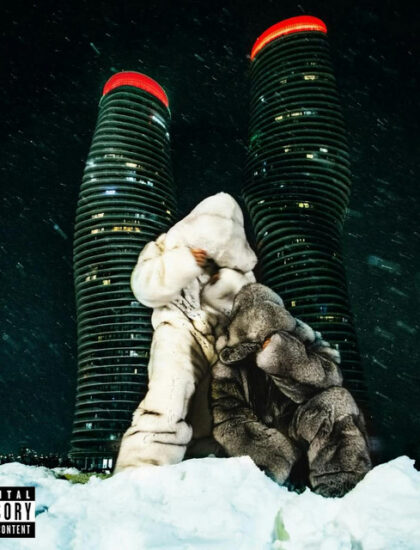When it comes to the Zimbabwean music landscape, they’re few singers with a sound quite as unique as that of Tahle We Dzinza. The songstress composes genre bending tracks that cross the continent and sometimes even the oceans in their sonic influences.
Drawing inspiration from artists like Salif Keita, Tracy Chapman, Nina Simone, Oliver Mtukudzi and Yemi Slade, Tahle’s music has hauntingly beautiful vocals that fuse elements of Opera, Jazz, Afrofusion, Asiatic and Arabic influences.
I would describe my sound as a fusion of experiences and culture. I draw from cultural inspirations from obviously Africa, but mainly West and Southern Africa. I also draw inspiration from Asiatic sounds, Indian cultural music as well some Arabic, and classical music. I’m actually classically trained and it’s a core to a lot of my music.
Music can be traced back to almost the beginning of Tahle’s childhood. As she tells it, her mother realised she had a knack for singing at the tender age of 3. The realisation occurred on a day young Tahle was thought to be watching tv, her mother thought to come and reduce the volume, only to discover that the tv was actually off and it was Tahle instead singing one of the Disney theme songs.
However Tahle We Dzinza only personally got an appreciation for her talent at the age of 11 when she started enrolling into international vocal assessments through the National Institute of Allied Arts. From the moment Tahle scored her first distinction she never looked back and with her mother as a guiding hand by her side, she was a fine musician by the age of 15. At 18 international news platforms like CNN were already interviewing her on her contribution to Zimbabwean Jazz music.
The “light of a generation” as her name says, Tahle sees music as more than just a tool to entertain but a medium of dialogue and a platform to address life’s issues.
My full name is Anesu Robyn Ketahle Dusika Chaya Dawani. Tahle, short for Ketahle, means light or happiness in Shangani. When translated Tahle We Dzinza means light or happiness of the generation. What I desire to achieve through my music is create a platform of beautiful dialogue amongst my people in hopes that it relieves whatever pains they may go through.
The intentionality Tahle showcased in coming up with her name is the same intentionality she brings to her artistry. African womanhood in particular is a subject she puts centrally in her storytelling. Her debut EP Rushesha was released in 2020 to high acclaim and it won her the Best Alternative Artist Award at the 2021 Zimbabwean Music Awards.
Before that however, Tahle had worked on several collaborations that had made her an easily recognisable voice. From “Give Me More” with Jah Prayzah, to “NdiBhambise Tione” with Tocky Vibes and the megahit that brought the Military Touch Movement together “Chekeche”. For some time Tahle herself was part of the Military Touch Movement stable, before leaving to spread her wings.
Tahle is not only a singer but she extends her craft to other parts of the music process.
I’m not just a vocalist, but I’m a producer, composer, songwriter and the process that I use when I make my music is totally different from A and A is totally different from me. I think that’s where the DNA of an artist is formed.
Tahle’s most recent offering, The EP Virago tells the story of a woman of uncommon courage, while exploring the feelings of love. The project earns it’s name from a nickname Tahle’s grandfather had for her mother. He used to call her “little Virago”. Virago being the latin word for a woman that goes against traditional feminine virtues.
Juxtaposed to Rushesha, Virago showcases a growing complexity or a layering rather of not only Tahle’s storytelling but her expression of sound.
Virago explores the beauty in the rage of an African woman, the beauty of acceptance of certain situations for African women, and the spirituality African women bring to relationships. I always say African women bring a certain aspect of spirituality to the way they love. African women go with God in every situation.
Tahle We Dzinza has graced stages like the Jacaranda Music Festival (Zimbabwe), Nyege Nyege Festival (Uganda), and HIFA (Zimbabwe) among others. The songstress’ creative expression has also extended to theatre. Tahle starred as one of the leads in the Zimbabwean award winning theatre production Bongile alongside Jazz legend Hope Masike.
Although they’re various accolades to her name and recognition of her vast talent by the platforms that have featured her, Tahle We Dzinza still feels a certain disconnect from the broader music fanbase in Zimbabwe. It often makes her wonder if there’s something she’s doing wrong but the artist is undeterred in continuing to tell African stories as best she can.
As an artist I come to my community, I come to the stage as a Zimbabwean first and foremost. Everything I do is an extension and a representation of my people. I think like anyone else I want my people to love what I do.
If Tahle could recommend a song to someone who’s never listened to her before or even heard of Tahle We Dzinza, she says it would be “Ghost Town”. The penultimate track from her last project Virago. She says the song in it’s different elements is an extension of where she is right now as an artist.
In addition to music the songstress is also passionate about raising awareness on issues affecting the youth. This has seen her occupy the role of Youth Ambassador for the IMUNZI group, helping raise awareness on mental health issues and reproductive health.
Tahle We Dzinza is part of ‘Tha Plug In’, a Creative showcase by the British Council in partnership with #enthuse Magazine.
























